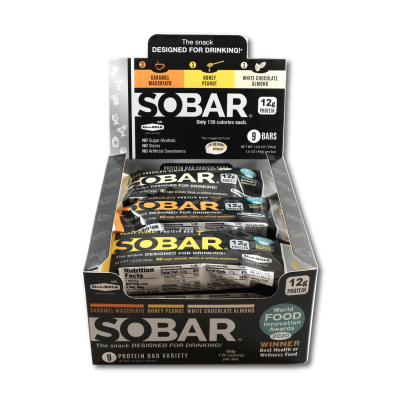Probiotic edge: Why bakery and snacks offer new opportunities for functional food innovation in the region

This is according to a recently published whitepaper by Kerry on the global functional food market.
The market for food and beverages containing probiotics is projected to be worth US$69 billion by 2023, of which APAC will contribute almost half at US$32bn.
“One reason for this is that consumers in Asia are focusing on holistic health through diet and nutrition, resulting in high demand for functional and fortified foods,” said John Quilter, vice president of global portfolio (proactive health) at Kerry.
In particular, probiotics have a growing appeal for its wide range of benefits. Long associated with digestive health, research is increasingly demonstrating that they can also offer benefits in areas like immune system support, respiratory health and protein absorption.
This is creating new opportunities for innovation with probiotics, particularly in sectors like bakery and savoury snacks.
Category innovation
One example is China’s Three Squirrels brand, which contains Kerry’s GanedenBC30 probiotic in its probiotic daily nuts mix.
In Australia, Nutra Organics incorporate probiotics into its energy bars, while China’s Bestore has a probiotic wafer biscuit.
Quilter told FoodNavigator-Asia this was a result of western-style consumption habits being embraced: “Growth in the category is mainly driven by strong performance in China and Japan, where younger consumers have been opened to adopting western eating habits, including the regular consumption of baked goods,
“Increased demand for value-added or healthier products is also driving purchases. The desire for better-for-you ingredients, as well as clean-label or reduced sugar, provides opportunities to enhance the perception of these products by offering digestive health benefits.”
Similarly, growth in the Asian market in the savoury snacks market can be attributed to western-style consumption habits, often combined with a focus on local flavors.
New applications and research field
In the past, probiotic strains tended to be fragile and had to be refrigerated, making it hard to use them in products beyond the dairy aisle.
But probiotics now have greater versatility including the ability to resist extreme pH levels, heat, cold or pressure, increasing opportunities to incorporate them into frozen foods, hot drinks and snacks.
Furthermore, growing research are conducted on the health benefits of probiotics, such as Kerry’s GanedenBC30 (Bacillus coagulans).
A clinical study published in Nutrition & Metabolism journal last year, found that GanedenBC30 could support protein absorption.
Another study published in the Food Research International journal in 2019 showed GanedenBC30 beneficial effect on gastrointestinal symptoms and upper respiratory tract infection symptoms in children.
Besides bakery and snacks, another upcoming area benefiting from probiotic innovation is hot tea.
In APMEA, the market for hot beverages has been projected to grow at 3% CAGR through 2024, with tea expected to grow at 3.5%.
In Asia, the high growth in demand for tea is largely being driven by markets in India, China and Vietnam, all of which have projected five-year CAGRs above 7%.
“Probiotic claims in this category have seen steady growth in recent years, largely because probiotics such as spore-forming strains have a structure that is highly resilient, allowing them to withstand harsh processing conditions including the exposure to boiling water inherent in the tea-making process,” Quilter said.
India’s Vahdam created a probiotic tea using Kerry’s spore-forming GanedenBC30.
Consumer market
The whitepaper also covered consumer awareness of probiotics and consumption behaviour in the APMEA region (Asia-Pacific, Middle East, Africa).
Japan had the highest awareness of probiotics seemingly because it was the first market to commercialise probiotics, followed by South Korea. Interest in China has been rising too.
According to Kerry’s research, 74% of consumers in China had consumed a probiotic in a functional food over the past six months, compared to a global average of 41%.
There is also a growing market in the Middle East. Kerry research shows that in the first six months of 2020, 48% of consumers in Saudi Arabia had used products with beneficial bacteria, and 30% had considered doing so. In Turkey, the figures were 42% and 31% respectively.






















